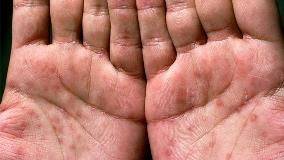Gonorrhea, also known as "the clap," is a sexually transmitted infection (STI) caused by the bacterium Neisseria gonorrhoeae. It can affect both men and women and is primarily transmitted through sexual contact. Gonorrhea can manifest differently in individuals, and its symptoms may vary or even be absent. However, there are several signs that may indicate the presence of gonorrhea.
Discharge: One of the most common signs of gonorrhea is abnormal discharge from the genitals. Men may experience a thick, pus-like discharge from the penis, whereas women may notice a yellowish or greenish discharge from the vagina. The discharge can have a strong odor.
Painful urination: Gonorrhea can cause a burning sensation or pain while urinating. This discomfort is often referred to as dysuria. It occurs due to the inflammation and irritation of the urethra or urinary tract caused by the infection.
Increased frequency of urination: People with gonorrhea may find themselves needing to urinate more frequently than usual. This increased frequency is a response to the irritation caused by the infection.
Rectal symptoms: Gonorrhea can also affect the rectum in individuals who engage in anal intercourse. Symptoms may include anal itching, pain, discharge, or bleeding. These symptoms can be mistaken for other conditions, such as hemorrhoids, but it's essential to get them checked by a healthcare professional.
Sore throat: Engaging in oral sex with an infected partner can lead to gonorrhea in the throat. Symptoms may include a sore throat, difficulty swallowing, and swollen lymph nodes in the neck.
Conjunctivitis: If infected genital fluids come into contact with the eyes, gonorrhea can cause a type of conjunctivitis known as gonococcal conjunctivitis. Symptoms include redness, discharge, swelling, and a gritty sensation in the affected eye.
Testicular or pelvic pain: In some cases, gonorrhea can lead to complications such as epididymitis (inflammation of the epididymis) in men or pelvic inflammatory disease (PID) in women. These conditions can cause pain, tenderness, and swelling in the affected areas.
Irregular menstrual bleeding: Women with gonorrhea may experience irregular bleeding between periods or heavier periods than usual. These changes occur due to the infection's impact on the reproductive organs.
It's important to note that gonorrhea symptoms may not always be present or may be mild, especially in women. As a result, many people may be unaware that they are infected, increasing the risk of transmitting the infection to others unknowingly. Regular testing for STIs, including gonorrhea, is crucial for early detection and treatment.
If you suspect you may have gonorrhea or have been exposed to the infection, it is essential to consult a healthcare professional. They can provide a definitive diagnosis through laboratory testing and prescribe appropriate treatment, usually involving antibiotics. Additionally, it's crucial to inform any recent sexual partners about the infection so that they can seek testing and treatment as well.
Preventing gonorrhea and other STIs involves practicing safe sex, including consistent and correct use of condoms, reducing the number of sexual partners, and getting regular STI screenings.



No comments yet
Be the first to share your thoughts!